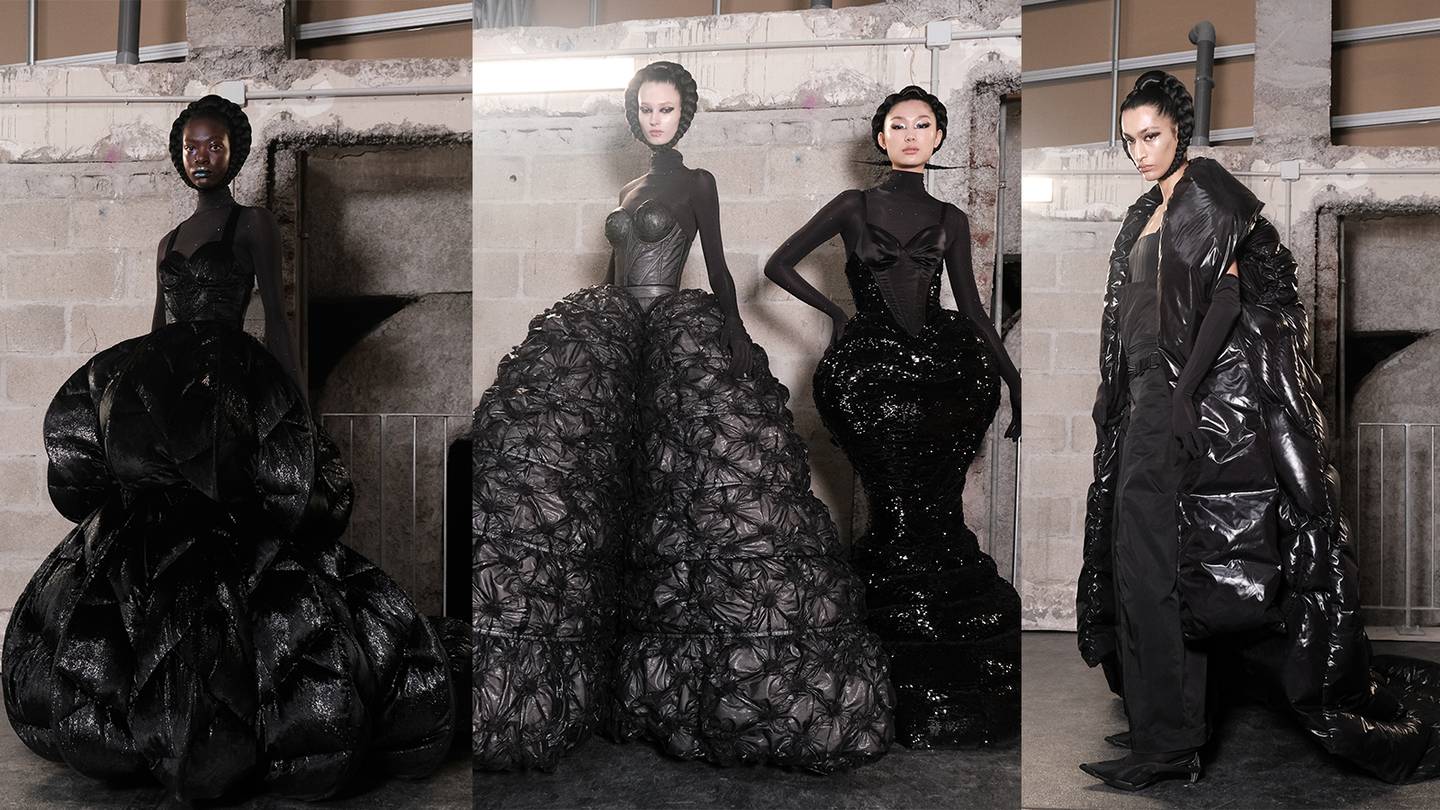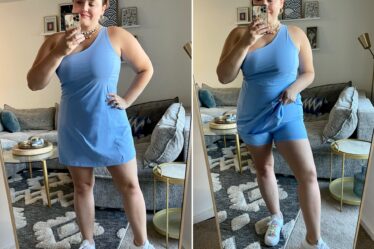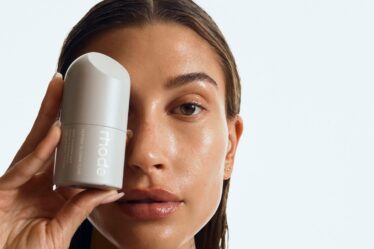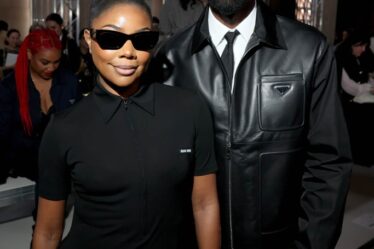
For William Shen, founder of luxury brand Raxxy, choosing to focus on padded down clothing had a lot to do with China’s strength as a manufacturing base. Chance also played a part as his hometown happened to be Pinghu, Zhejiang province, the country’s main hub for down feather production.
“It has the only dedicated down feather wholesale market in the country,” said Shen, who spotted a gap in the market before launching Raxxy in 2020. The designer made waves after showing his second collection at the Great Wall of China and scoring a collaboration with Italian outerwear brand Moncler three years later.
“People didn’t really pay attention to the material before,” he added. “But with street culture sweeping the fashion industry in recent years, down clothing has become more expressive and even synonymous with winter style.”
Shen’s geometric designs, which infuse a couture-like sensibility into the fabric, leverage patented techniques including some that are inspired by traditional Chinese crafts like paper cutting and braiding. Most of his down items — which aren’t restricted to outerwear — sell for around $3,000 to $4,000.
In contrast to materials like lace and leather, where the relevant expertise may still be unparalleled in Europe, specialist know-how of down feathers has existed in China for many decades. With the northern reaches of the country experiencing a cold climate, domestic demand for down products sparked the development of local outerwear giants like Bosideng, founded as early as 1976, alongside an export-orientated manufacturing industry.
Shen is not the only young Chinese designer transforming the utilitarian fabric into distinctive fashion statements that have attracted international attention.
There is Dingyun Zhang, a designer who hails from Inner Mongolia and is stocked at H.Lorenzo in the US and GR8 in Japan. Using his design background at Yeezy, incorporates a street sensibility into Mongolian cultural references for his eponymous brand, like reinterpreting the traditional terlig coat in puffer form. “[Where I come from] we’re used to clothing that caters to extreme weather conditions, so it’s natural I explore these elements,” he explained.
When Zhang worked with Italian luxury brand Marni in February of last year, he released bright polka-dotted mohair-covered down jackets and trousers. The designer said his aim was for the clothes to feel superhuman with oversized proportions and to reflect the wearer’s vulnerability by creating bubbles.
Another young designer making waves as a down specialist is Chen Peng. His namesake brand founded in 2015 specialises in avant-garde and experimental down outfits. The creations retail for around $1500 to $2,000 and range from exaggerated silhouette ball gowns to feather-filled purses and puffer face coverings.
“Down materials have great creative potential and possibilities,” said Chen, adding that “down products are also the product category with the highest relative profit margin in clothing [and] China’s down jacket supply chain is one of the world’s leading giants.”
Today, the brand is stocked in over 70 retailers internationally and his clothing has been worn by stars like Rihanna and Lady Gaga. Most recently, Chen collaborated with MM6 Maison Margiela in a campaign starring Chinese actors Zhou Yutong and Wang Anyu but he also has partnerships with Moncler and Anta under his belt.
The author has shared an Instagram Post.You will need to accept and consent to the use of cookies and similar technologies by our third-party partners (including: YouTube, Instagram or Twitter), in order to view embedded content in this article and others you may visit in future.
Though the puffer is showing signs of some fatigue in the western world, according to trend data from retail intelligence platform Edited, the market for down attire in China is still growing strongly.
Bosideng, a firm seen as China’s answer to Canada Goose, reported profit that surged 25.1 percent in the six months to November. With over 3,000 stores, the brand has made founder Gao Dekang a billionaire. It has shown at Milan fashion week with Chinese-American Olympic freestyle skier Eileen Gu, model Coco Rocha, and celebrity actor Hu Bing walking in its most recent show.
Although sales at Canada Goose have slowed as the Chinese economy turned tepid, for several years after the brand opened its first store in China back in 2018, customers eagerly lined up to purchase its puffer jackets. In five years, the company opened 21 stores across mainland China and chief executive Dani Reiss stated last year that this number is low for the business.
Moncler last October reported a slowdown across the globe in the third quarter, in line with the broader luxury market deceleration, but its chief corporate and supply officer Luciano Santel said China performed better.
A slew of niche foreign brands like Mackage, Moose Knuckles, and Parajumpers have also entered the Chinese market, competing with homegrown brands like Skypeople and more sports-focused lines from Arcteryx and Anta. Several older Chinese firms that started as a business providing down bedding, such as Yalu and Yeshun, also operate sizable fashion businesses even if they are not trendsetters.
The author has shared an Instagram Post.You will need to accept and consent to the use of cookies and similar technologies by our third-party partners (including: YouTube, Instagram or Twitter), in order to view embedded content in this article and others you may visit in future.
Collaborations between international companies and Chinese designers aren’t limited to the likes of Moncler and Marni tapping the creativity of Raxxy and Dingyun Zhang. Experimental Chinese designers are also now at the helm of global brands known for down products.
Shanghai native Helen Lee has been creative director of skiwear label Perfect Moment for the past 11 years. When she first joined the Chamonix-founded brand, the designs looked similar to other sportswear brands like Columbia or The North Face albeit with classic colour schemes that denoted its French roots, Lee said.
“My concept was to inject some bright colours, [unexpected patterns like houndstooth] and fun elements [into down jackets] so you can go to the mountain but you can also wear it in the city,” Lee explained.
Back in China, down is a material that still holds potential for fashion entrepreneurs to build or grow a business, suggests Shen. So much so that a brand in the category could even become the country’s “first luxury brand with authentic global influence,” he said, in a not-so-subtle reference to his own label Raxxy.



